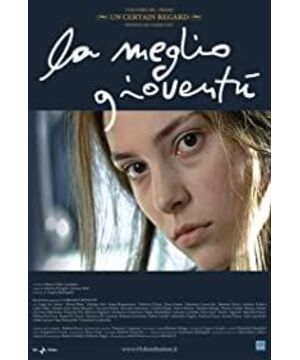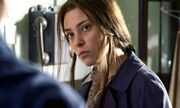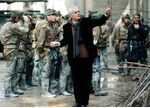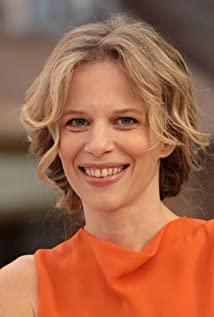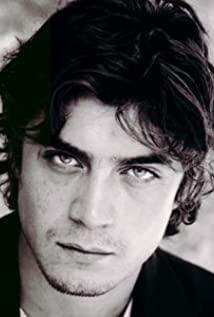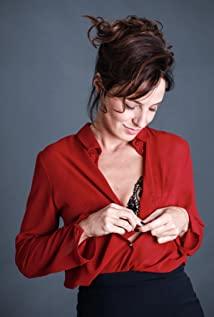This time, there is a new discovery, the Norwegian forest turned out to be "elsewhere" in Italy. "Professor Dinosaur" said that Italy is a hopeless country and people with lofty ideals should go to London, Paris and America. Probably people of any age will feel that there is no hope "here" and should go "elsewhere". Nicola went to Norway, read Ginsburg's "Howl" by the lake in Xanadu, took a celestial bath under a waterfall, listened to the American boy who fled to Northern Europe on the Vietnam battlefield and shouted "stop the bombing" in his heart. A gallant Nordic girl in love...
A flood in Rome, the muddy town hall square becomes a stage where the lost meet by chance: on a trip to Norway he has embraced liberal ideas and aspires to be Nicola, a psychiatrist, who studied economics, and philosophy, Matteo who completed his brutal military training and put on a uniform to "obey orders", and Giulia, who played the piano well, studied mathematics, and loved revolution. No matter what the "source", they have the same goal at this time, and they are becoming the backbone of this stricken country. After that, they will slowly walk from this square stage to their respective bifurcated roads, saying goodbye to "the best youth".
Their lives have never been the same. What is more embarrassing than the time of wind erosion and water erosion, and what is more heart-pounding than the betrayed youth? The life of a young man who is bright and unaware of sorrow and fear can be so dangerous and tragic. Giulia went from an otherworldly teenage girl playing Beethoven in a turban to a terrorist walking in the shade wearing sunglasses, thrown into a high wall and isolated from her family. Matteo went from a handsome boy immersed in poetry, with straight A grades, and helping passers-by, to a policeman who bumped into walls and struggled with animals, and finally jumped off the balcony.
Giulia is actually a mirror image of Matteo. Their political stances in the student movement were completely opposite, but they had the same strong temperament - "feeling that they were all right". They also go to extremes, to tragedy. The director obviously did not attribute the cause of the tragedy too much to the times and society, but instead focused on the character.
Nicola is another mirror image of Matteo, which is also a clue throughout the film. At the beginning of the university exam, Matteo was excellent, but he was too rigid, contradicted the examiner and gave up the university, but Nicola was awarded extra points by the professor because of his warmth and compassion; Matteo received severe training in the military, Nicola bathed in freedom in the beautiful scenery; Matteo Hoping to be a police officer who promotes good and punishes evil, but was irritable and ran into obstacles everywhere. Nicola became a psychiatrist, changing the surroundings little by little, and even really cured Georgia, saving batch after batch of mental patients; Matteo continues to In the frustration of losing his wife, brother, and parents, Nicola has never lost his rationality and optimism, trying to bring warmth to the surrounding, and even continue to harvest love... The brothers are equally kind and idealistic And love, but the characters are so different as if yin and yang are two sides of the same coin. Matteo had always wanted to become Nicola in his heart, and this wish finally came true after his death. After Nicola and Marella were combined, the two brothers were finally united in Marrela's mind.
The power of warmth cannot be felt without one heartbreaking tragedy after another. With warm Nicola, warm mother, warm Marella... This is a warm film. The director also arranges a reunion to warm hearts after every heartbreaking parting. He reunites the living and the dead through children. A little boy with big blue eyes, Matteo's posthumous son, gives every loved one a reason to live and keep smiling. The director even arranged for the dead Matteo to stand behind Nicola and Marella and hug them together. Who wouldn't cry for them at this moment? Daughter Sara reunited with her mother Giulia. It was also the daughter who took off her mother's sunglasses and said "you look better like this", pulling her back into the sun. Italy is really a country that loves families and children. Children always salvage adults from crisis time and time again.
There are some of the most beautiful Italian women I've ever seen. Giorgia always slept as sweetly as a baby in the midsummer sunshine, her big eyes were as quiet and clear as lake water, and she had never been contaminated with a bit of dust in the adult world. The kind and gentle Marella has been laughing, the bridge of her nose is slightly wrinkled, which is refreshing. The elderly mother has a pair of big eyes full of love, watching the children affectionately and sympathetically. After breaking contact with her eldest son, she must also go to the hospital to watch her son's comrade-in-arms so affectionately and sympathetically, and finally cured him. . And Giulia, even though her face was stiff and eccentric later, was actually amazingly beautiful. Her debut playing the piano on the muddy square was simply dazzling, the embodiment of youth. Her daughter, Sara, eventually turned out to be a valiant young girl. The director must be an idealist. The women in his eyes are rarely those with big breasts and fat buttocks, and they often have the brilliance of the Madonna in Renaissance oil paintings, clean, soft, fraternity, and full of ideals.
At the end of the film, Matteo's son grew up and came to the same waterfall in Norway, which is considered to make up for his father's youth. If Matteo hadn't missed this trip to "elsewhere", the journey of enlightenment, what kind of life would he have?
View more about The Best of Youth reviews


